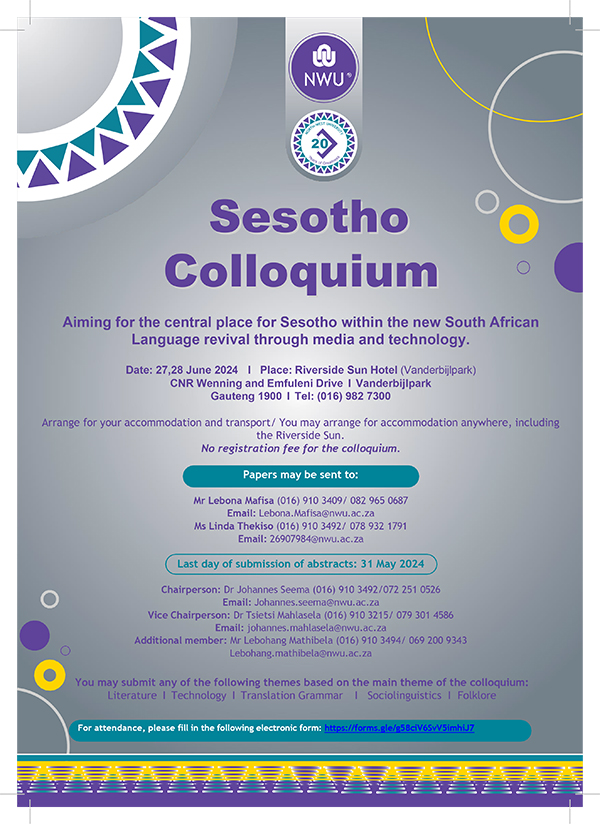The School of Languages and the Language Directorate at the North-West University (NWU) will host a Sesotho Colloquium from 27 to 28 June to celebrate and promote the Sesotho language.
This colloquium is significant as it marks the first time a conference of this scale will be conducted entirely in an African indigenous language and is set to make a significant contribution to the preservation, appreciation, and academic advancement of the Sesotho language.
With an anticipated lineup of approximately 25 papers delivered in Sesotho, the colloquium promises to be a unique and enriching experience for academics, researchers and language enthusiasts. The topics to be covered will include African language revival, literature, technology, translation, linguistics, grammar and folklore.
According to Dr Johannes Tsietsi Mahlasela of the Language Directorate, this event holds great promise for furthering the discourse surrounding the importance of indigenous languages and their integral role in academic and intellectual arenas.
Dr Mahlasela says the aim is to attract academics, Sesotho language practitioners and subject advisors, students, and school teachers to raise awareness about opportunities available for Sesotho practitioners in the upcoming colloquium.
"Conducting the colloquium entirely in one of the African languages will have a far-reaching impact - both locally and internationally. Locally it will encourage other institutions to do the same with their African Languages, thereby increasing the impact of the use of these languages for other subjects. Internationally this colloquium will promote our African languages to command respect as languages of research," he adds.
Dr Mahlasela says this will also contribute towards the development of Sesotho as the language of learning, teaching and research.
"Such a colloquium would also contribute towards the re-intellectualisation of Sesotho within the paradigm of the indigenous African languages."
He adds that this initiative aligns with the university's broader efforts to embrace linguistic diversity and create inclusive spaces for diverse linguistic communities.
“Moreover, this event serves as an important platform for nurturing and elevating Sesotho as a vital medium for scholarly and intellectual exchange. Conducting the entire colloquium strictly in Sesotho will highlight the possibility that different modules at the NWU can be taught strictly in one of our African indigenous languages.”

